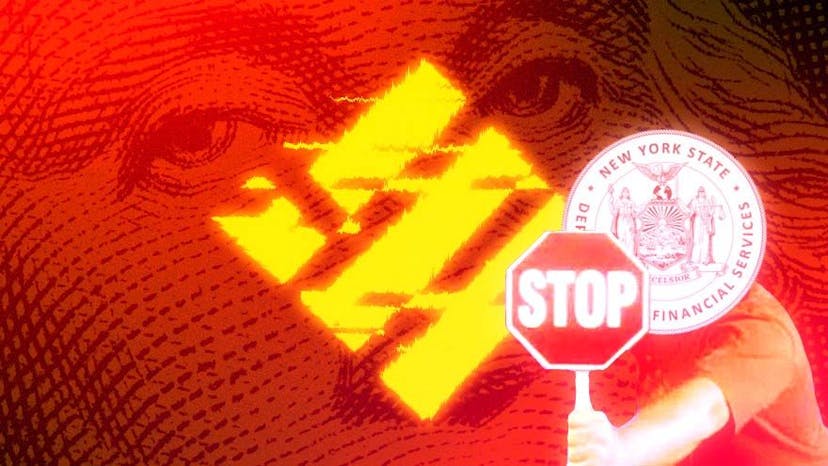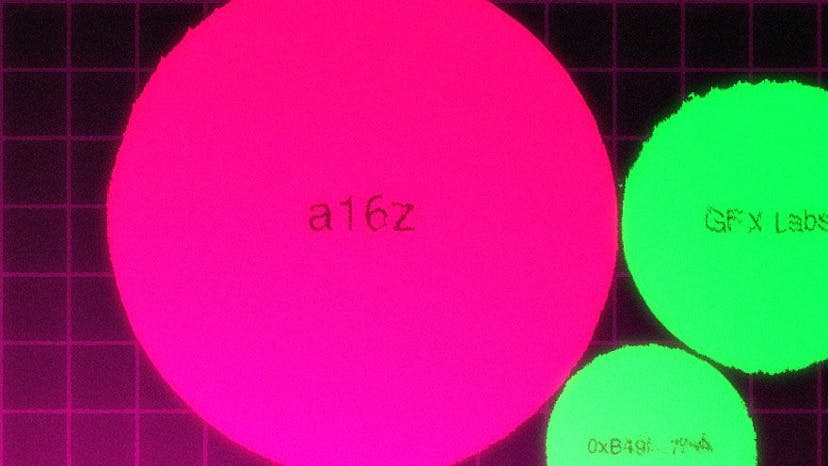NY Orders Paxos to Cease Issuing Binance USD
CZ Says Paxos Will Service BUSD to Manage Redemptions
By: Samuel Haig • Loading...
Regulation
The U.S.-based stablecoin company Paxos will stop issuing the Binance USD after facing pressure from regulators, Binance, the largest centralized crypto exchange, said on Monday.
Paxos was ordered to cease issuing Binance USD by the New York Department of Financial Services. The news was reported by The Wall Street Journal and then confirmed by Changpeng Zhou, the CEO of Binance.
Fully Covered
BUSD is the third-largest stablecoin with a capitalization of $16.1B and is held by 6.2M investors, according to Binance. The exchange teamed up with Paxos to launch the token in 2019
Paxos will continue to service BUSD and manage redemptions, but the stablecoin’s supply will decrease over time as users redeem their tokens. The reserves backing BUSD remain in Paxos’s bank accounts.
“Paxos also assured us the funds are SAFU, and fully covered by reserves in their banks,” Zhou tweeted.

Threat of Uniswap Replication Triggers Rare Clash With A16Z
Venture Capital Firm Disagrees With Community Plan For Bridging
The news comes after CoinDesk reported last week that NYDFS launched an investigation into Paxos. It also struck as the crypto community was digesting the significance of the U.S. Securities and Exchange Commission’s action against Kraken’s staking service last week. The agency’s lawsuit, which shuttered Kraken’s offering, triggered a swoon in the cryptocurrency market, with ETH dropping more than 9% in the last seven days.
On Sunday, the Journal reported that the SEC served Paxos with a Wells Notice — a document informing companies when it plans to take enforcement action against it — for violating investor protection laws by issuing an unregistered security.
Asset or Security
The firm has 30 days to respond to the SEC notice.
The Paxos move was met with criticism from many influential players who argued that stablecoins are not securities according to the SEC’s Howey Test — a set of criteria developed by the U.S. Supreme Court in 1946 to determine whether an asset is a security.
“How on Earth is a stablecoin considered a security when it clearly doesn’t meet the Howey Test,” tweeted Miles Deutscher, a popular crypto analyst. “No one has ever had ‘the expectation of profit’ when buying BUSD.”
Adam Cochrane of Synthetix tweeted that the issue goes beyond the Howey Test. He said the test assesses investment contracts, but securities are a much broader asset category that is opaquely defined by the 1933 Securities Act.
“Honestly, if the SEC wants to, with how vague the act is, it’s fairly easy to put anything under it,” Cochrane said. “If someone is holding or otherwise securing value for you, and you are trusting them to do it, and not otherwise exempted, it’s a security.”
Zhao said the exchange will move away from using BUSD as its main trading pair in response to the drama, and he expects users will migrate to other stablecoins.
Zhou added that a legal ruling classifying BUSD as a security would significantly impact the development of the web3 industry in the U.S.
Advertisement
Get the best of The Defiant directly in your inbox 💌
Know what matters in Web3 with The Defiant Daily newsletter, every weekday
90k+ investors informed every day. Unsubscribe anytime.